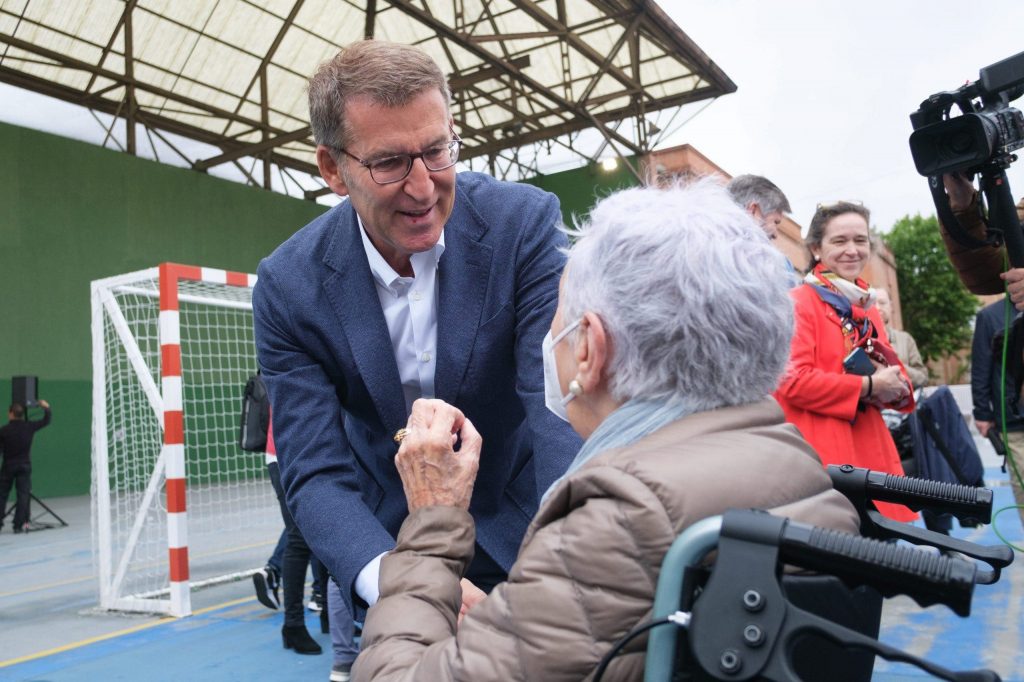
THE CONSERVATIVE Popular Party was the big winner at Sunday’s regional and local elections, at which 12 of Spain’s regions and more than 8,000 local councils were up for grabs.
As was predicted by the polls, voters shifted toward the right at the cost of not just the Socialist Party, but also new parties such as Citizens (Ciudadanos) and Podemos, both of which emerged in the 2010s and shook up Spain’s traditional two-party system.
As early as 10.20pm, just 20 minutes after the results started to come in, sources from the PP were telling reporters that the ‘blue wave, the very blue wave’ represented a ‘total change of cycle’ and spoke of a ‘knock out’ for the Socialist Party Prime Minister Pedro Sanchez.
Below are the results in the main municipal races, with the regional results (Valencia, Madrid, Castilla-La Mancha, the Canary Islands, Cantabria, La Rioja, the Balearic Islands, Asturias, Navarre, Murcia, Aragon and Extremadura) still to be confirmed as at 11.40pm Sunday night.
Madrid
The Popular Party won an absolute majority in the Spanish capital, with 29 of the 57 seats. That means that Jose Luis Martinez-Almeida has been reelected as mayor. Centre-right Ciudadanos lost all of its seats, with leftist Mas Madrid coming second with 12, the Socialists third with 11 and Vox with five.
Barcelona
The big story in the Catalan capital was the victory of Together for Catalunya (Junts per Catalunya), a pro-independence party that was founded by former Catalan premier Carles Puigdemont, who is still living in self-imposed exile to avoid arrest for his role in the 2017 independence drive.
The party’s candidate, Xavier Trias, won 11 seats, with the Socialists second with 10, and current mayor Ada Colau taking nine.
With no party achieving a majority, deals will have to be done, but the result means that current mayor, activist-turned-politician Ada Colau, will no longer be mayor after eight years in the role.
Vox also managed to win two seats, meaning the far-right party is entering Barcelona City Hall for the first time.
Valencia
The PP also managed to win the race for Valencia City Hall, taking 13 seats but falling short of an absolute majority of 17. Vox, meanwhile, took four seats, meaning that a majority is possible if the two parties can do a deal. Of the left-wing parties, Compromis took nine seats and the Socialists seven. The Valencian branch of Unidas Podemos failed to take a single seat.
Seville
The PP also managed to win Seville City Hall from the Socialists, with 14 councillors – two short of an absolute majority. Vox took three seats, meaning that a deal is possible. The Socialists, meanwhile, managed 12 seats while Con Andalusia took two.
Alicante
The incumbent PP mayor of Alicante, Luis Barcala, has managed to hold onto his position, and will be able to govern without the support of Vox. The far-right group did, however, manage to go from two seats to four in the council.
Costa del Sol.
The Popular Party won Málaga City Hall, with Ciudadanos disappearing from the assembly. Francisco de la Torre, who is aged 80, will now assume his seventh mandate as mayor.
In Marbella, PP mayor Angeles Muñoz went from 14 councillors to 13, meaning she has lost her absolute majority in the 27-seat chamber. A deal with Vox, however, who won two seats, will keep her in power.
In Estepona, PP mayor Jose Maria Garcia managed to win reelection, while the conservative party also won in Fuengirola, Benalmadena, Torremolinos, Rincon de la Victoria, Velez-Malaga and Nerja.
A national fight
The polls had predicted that the PP would make major gains, and the election campaign often focused more on national issues and politics than local ones.
Both PP national leader Alberto Nuñez Feijoo and the Madrid premier Isabel Diaz Ayuso focused much of their discourse on EH Bildu, the former political wing of the now-defunct Basque terrorist group ETA.
During the campaign, a victims’ group revealed that EH Bildu had fielded 44 candidates for the elections who were convicted ETA terrorists, including seven who had been convicted for murder during the groups decades-long violent campaign for an independent Basque Country.
The situation put Prime Minister Pedro Sanchez in a complicated position, given that EH Bildu is one of the political parties that has supported the coalition government in Congress and helped it pass legislation with its votes.
The result will now bolster the PP ahead of the general election due to be held in December of this year. Polls, however, suggest that no party will win a clear majority in Congress at that vote, meaning that the PP is likely to have to do a deal with Vox if it is to form a government.
Read more:

